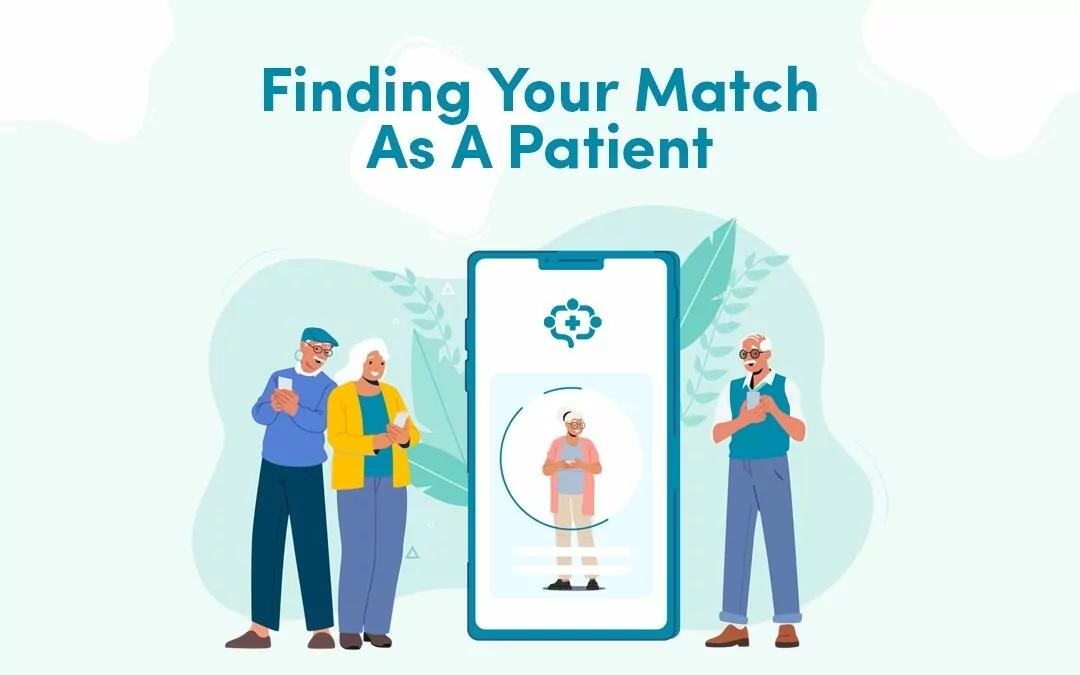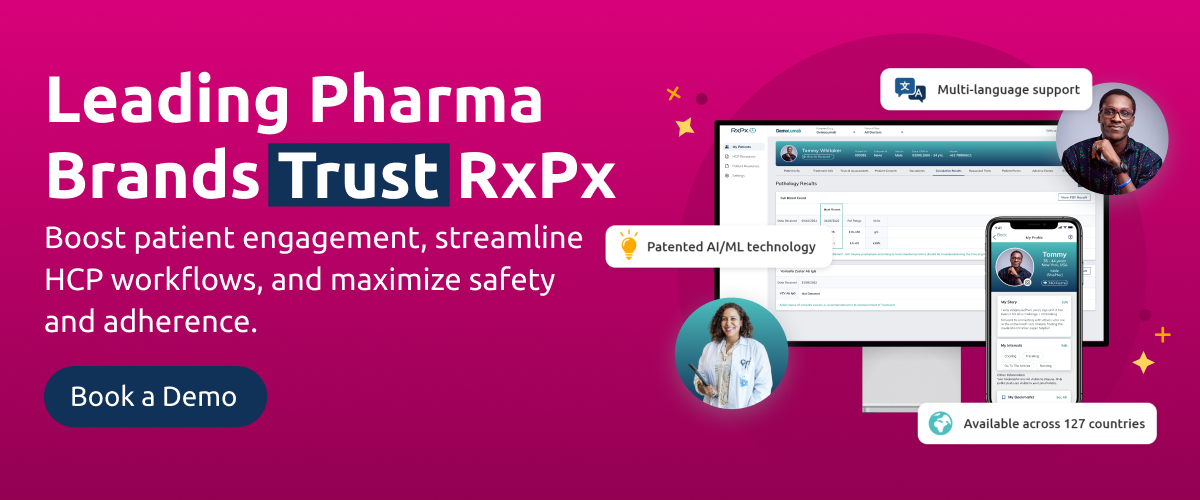How We’re Using Matchmaking and AI to Drive Understanding of Disease and Health Management
One of the biggest challenges for pharma once the patient’s prescription is filled is adherence. According to the World Health Organization, non-adherence can account for up to 50% of treatment failures. Adherence is in the hands of the patients who often feel no connection to the pharma company. Patients can feel alone and with no one to keep them motivated to manage their disease. It’s not about simply providing the patient with information. It’s about giving them access to support and community. RxPx is helping healthcare organizations, from hospitals to pharmaceutical companies to telehealth companies, develop their own private patient social networks accessible via mobile app technology. RxPx configures a personalized patient experience using matchmaking technology and AI. It’s this personalization that is driving adherence and understanding of disease. Research shows 81% of users stay on therapy using the RxPx platform.
With a background in psychology and video game development, RxPx’s Chief Product Officer Mark Baxter spent his early career creating products that can make doing difficult things like quitting smoking more fun and engaging. A few years ago, he was diagnosed with diabetes and like many patients, felt isolated as he managed his disease. “I can talk to ten different people with my condition and we all got slightly different challenges based on who we are as people. The healthcare system itself doesn’t have the time to really spend that one on one quality time with every person to the level that we need it. That’s where I think a company like RxPx comes in, connecting people with other people who share a similar condition. Even a similar stage. This really mattered to me.”
Matchmaking Approach and AI
When a patient joins a RxPx network, they become part of a personalized healthcare community. Using patented matchmaking technology, patients are matched with patients with similar profiles. RxPx research shows 82% of people matched with people like them. “We analyze patterns of different personality types and how well they work together. We can see whether or not that is actually what works and then improve that algorithm. Every day we get new data and we refine the matchmaking. Over time we are also bringing on new apps and new companies, new patients with new conditions. So that algorithm is constantly calculating that data and trying to push forward people who are going to be a better fit.”
This predictive, matchmaking technology is built around AI. There is also AI in Mary, RxPx’s digital concierge. “We built a digital agent that can have conversation with patients. So, 24/7 you can reach out and somebody can say I heard your question and I can see that you have an issue and I’ve got a suggestion. The AI works in tandem with Community Managers who are like coaches to help you navigate the app. They introduce you to people, check in with you, and post content”, says Mark.
Adherence Metrics
One of the key metrics for pharmaceutical companies is medication adherence. Patients report strong engagement with the app with 86% reporting weekly interaction. A further 73% report better management of side effects. Says Mark, “If people understand the effects of not taking that pill and they understand how to manage those side effects, then those people are going to adhere. People that have a gap in their knowledge, and they don’t have the right strategies to manage the things that are uncomfortable about medication, those are the people that are not going to adhere. And that’s where we can reach out and understand because we have that Community Manager or AI and we can understand who that person is and help them adapt, give them strategies.”
Available in 104 countries and 20 languages, RxPx can scale to the needs of any health organization. “It’s a configurable technology,” says Mark. “We can make a connection with the patient. That’s the other thing. People really feel isolated. It just helps people feel more empowered and capable to do things they need to do. Whereas isolated people begin to sort of trickle and fall off. They go about their own lives and forget about things if they don’t have a support group. I think those are all the things we bring to the table in a unique way, that social aspect.”
If you would like to learn more about how soft adherence can be used to help build patient support, book a free demo with the RxPx team. Please contact: contact@rxpx.health.



